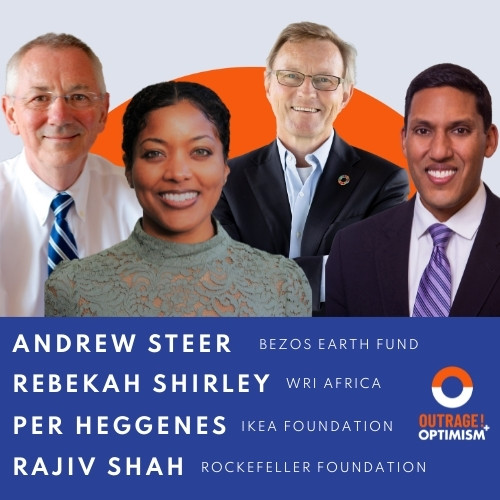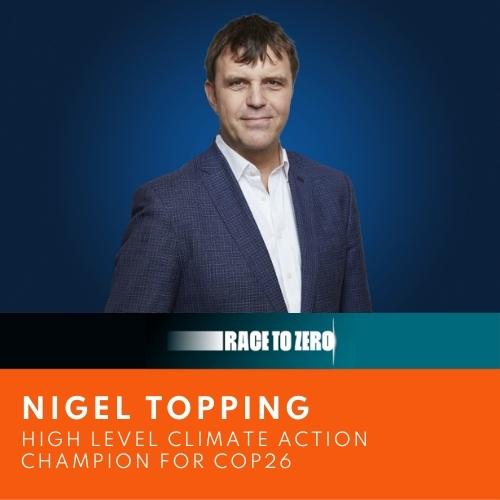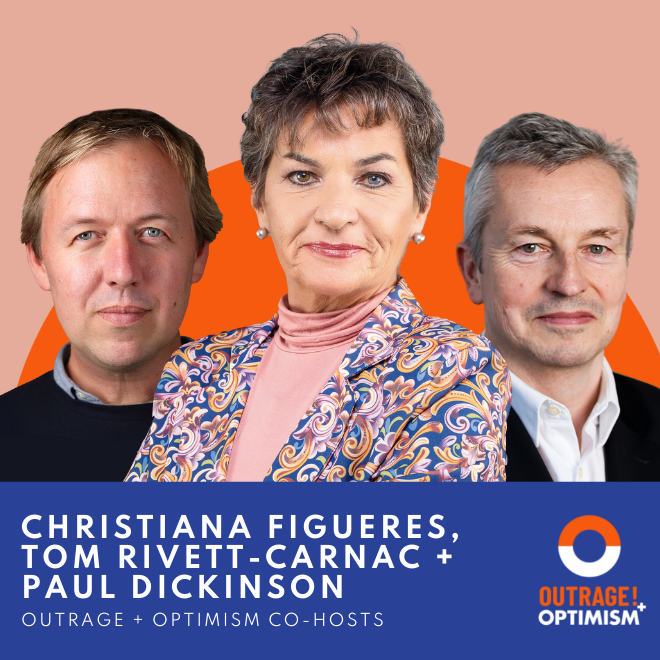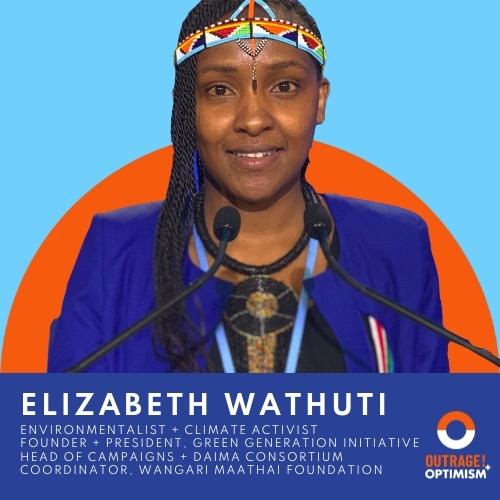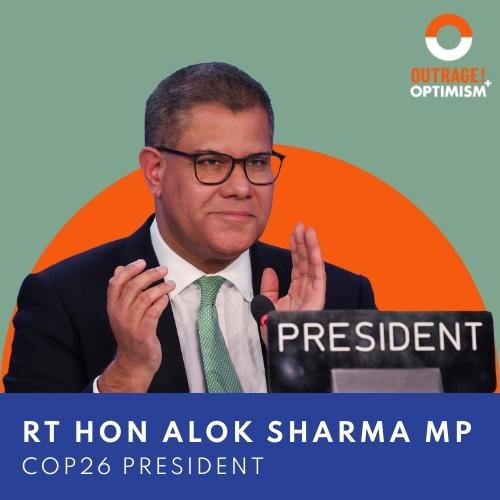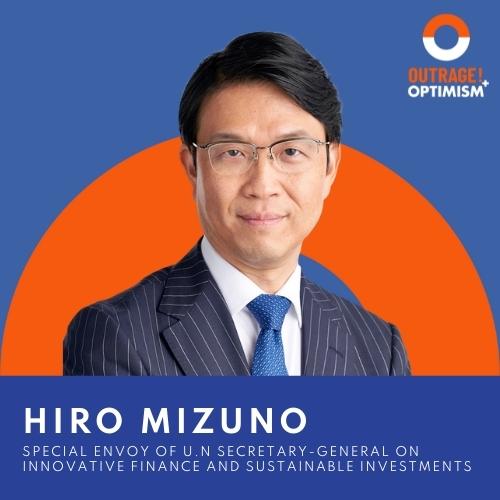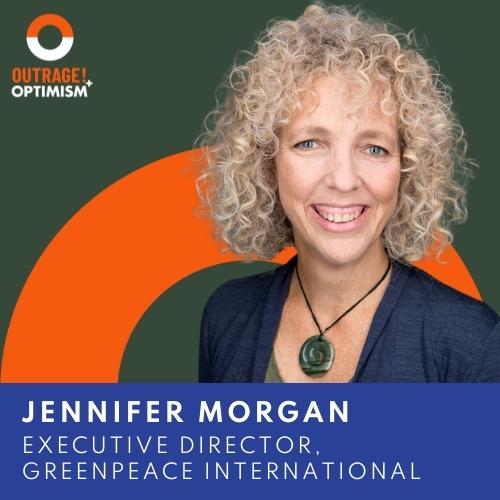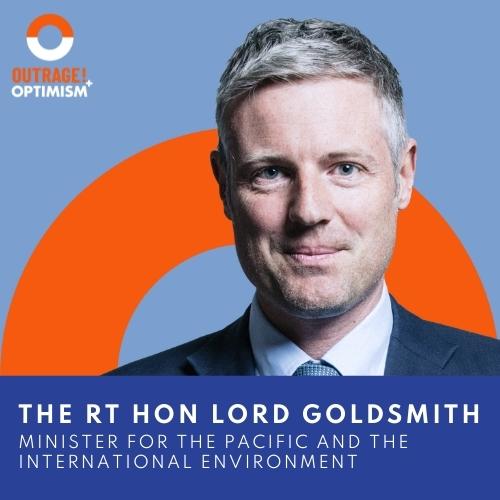126: COP26! All Eyes on 1.5
The World Leaders Summit at COP26 has happened...So what happened, exactly?
About this episode
The World Leaders Summit at COP26 has happened...So what happened, exactly?
A LOT.
This week, we cover it all in a laid-back-waiting-for-takeaway-to-arrive style conversation with our hosts.
We’ll cover updated pledges and commitments on an end to deforestation by 2030, methane reductions and India’s Net Zero 2070 target.
We also get into inclusion and representation of the Global South, and how we went from 50% of global emissions covered by a Net Zero target at the beginning of this year, to yesterday it being 89%.
So sit back, relax, and dig in!
-
Links mentioned in the show:
- READ: Vanessa Nakate for TIME
- READ: Beware: Gaia may destroy humans before we destroy the Earth by James Lovelock
- READ: The Case for Climate Reparations by David Wallace-Wells
- WATCH + READ: COP26 Must Keep 1.5 Degrees Celsius Goal Alive by UN Secretary-General António Guterres
- WATCH: Pope Francis says Costa Rican coffee “is the best in the world.”
Full Transcript
Transcript generated by AI. While we aim for accuracy, errors may still occur. Please refer to the episode’s audio for the definitive version
Christiana: [00:00:00] Excuse me, excuse me, Paul and Tom. When do I get to say that this week, the pope said that Costa Rican coffee is the best in the world?
Tom: [00:00:13] I think there are other things going on in the world this week. Can't you save it for next week?
Paul: [00:00:16] The pope saying Costa Rican coffee is a bit, It's just weird. Like, maybe this is all like The Truman Show, but instead of like us being in a big dome, we're in some sort of Costa Rica propaganda machine.
Tom: [00:00:28] Well, not only that, but what is the pope doing? Is he in the future going to be saying the pope brings you home insurance?
Paul: [00:00:32] Whatever happened to kind of like, you know, don't sin and
Christiana: [00:00:35] The pope is above all, bad and evil and good. Ok, everything he's like infallible, right?
Tom: [00:00:41] Right, right. I think there are other things going on this week.
Theme Song [00:00:49] Five, three, two one zero.
Tom: [00:01:04] Hello and welcome to outrage and optimism, I'm Tom Rivett-Carnac.
Load MoreChristiana: [00:01:07] I am exhausted Christiana Figueres. I mean, beyond, beyond any level of exhaustion, but I'm still me.
Paul: [00:01:15] Poor Christiana, and I'm Paul Dickinson feeling very sorry for Christiana poor her.
Tom: [00:01:22] It's the end of two years at COP, two days.
Christiana: [00:01:23] Two days! It feels like two years
Tom: [00:01:26] Two days yes same thing and we're going to bring you our reflections from the World Leaders Summit. Thanks for joining us. I mean, being here or whatever it is now.
Tom: [00:01:41] So it is late on Tuesday night.
Paul: [00:01:44] It’s ridiculously late. It's like ridiculous o'clock, very late.
Tom: [00:01:47] We're waiting for Indian food. We got up at like four o'clock this morning to start the day. Christiana has done about 30,000 media interviews. I've done a whole bunch. There's been speeches. How are you feeling Christiana? Yeah. How are you feeling?
Christiana: [00:01:59] Honestly, I can't even describe it. I am so exhausted.
Tom: [00:02:05] She is almost horizontal. She's kind of lying down in this very cold.
Paul: [00:02:08] She’s in one of those Chairs that are easy to get into, hard to get out of. Poor thing, right? How are you?
Christiana: [00:02:14] We're being reminded of what COPs were, right?
Tom: [00:02:19] Yeah, I mean, I can't believe people did this for two weeks. I'm ready to go home.
Christiana: [00:02:22] We did this for three weeks. We got there a week and a half before. Then we had the whole two weeks and we worked 18 and 20 hours a day. Yeah. How did we ever survive?
Tom: [00:02:34] And they are doing that in there. I mean, the COP team have already pulled their first all-nighter. They did it to land the agenda right at the beginning.
Paul: [00:02:40] Under the leadership of Patricia Espinosa and the whole UNCCC team.
Christiana: [00:02:45] Well, and the COP presidency.
Paul: [00:02:46] And the cop presidency.
Christiana: [00:02:48] I mean, honestly, you know, parties are otherwise known as governments or anybody else that goes to a cop. I have no idea how much work goes on behind the scenes. They have no idea.
Tom: [00:02:59] Now I'm sure that most of our listeners have dialed in to hear how tired we are, but maybe they also want to know what's been going on.
Christiana: [00:03:04] Yes. Yes, yes. Yes, quite. Thank you for reminding us of the point of this whole conversation, right? Tom, would you like to lead us into a summary?
Tom: [00:03:14] Yeah. And if I can quite do that, I mean, I have to say the difficult thing about this podcast is going to have to be that there has been a lot. It's actually been a really impressive and amazing couple of days. So let's just start and we won't have to spend too long on this. But let's just start with the political signal. I mean, this has been the largest gathering of heads of state on any functional issue since Paris. The one point five, ...
Christiana: [00:03:41] What do you mean functional issues? There are the dysfunctional issues.
Tom: [00:03:44] That's a really good point. I don't know what that means.
Paul: [00:03:46] It makes me really like quite heavyweight.
Tom: [00:03:53] I got away with it, I don't know what it was like. This is the largest gathering of heads states in Paris, one point five degrees has been very much a firm. No one is backtracking as far as I can see on one point five. There has been an amazing...
Christiana: [00:04:04] Wait, can we just take a moment to truly underline how amazing that is? Because honestly, just three years ago we were all, we and everyone else was still referring to two degrees or in the best of all cases, well below to the fact that, that IPCC report has just completely changed the GPS for all of us, and that everyone is now referring to one point five. Honestly, I think that is fantastic.
Paul: [00:04:34] So let's take away food from an Indian restaurant, right? Yes, exactly.
Tom: [00:04:38] Yeah. Thank you, Paul and most, so coming out of the G20, we should say one point five was put in as the target. They didn't even mention that at G20, which is incredible. Incredible. Although I do have to say that I saw Xie Zhenhua, the Chinese lead negotiator giving an interview today in which he really dialed it back and he said we cannot shift a one point five, two degrees has been agreed through negotiation. If we reopen that, then actually there's going to be a whole bunch of problems. So a little bit of cold water on that. But there has been progress. We're in that slightly complicated middle ground now where many are focusing on 1.5, but there are, of course, still those who aren't.
Christiana: [00:05:13] Well, I'm impressed that...
Tom: [00:05:17] That I’ve been watching press conferences?
Christiana: [00:05:19] Yeah, no, that he's dialing back on that because as far as I'm concerned, 2050 is down the drain. Everybody is now really being expected to focus on 2030, two degrees down the drain. Everyone is being expected to focus on one point five. And the consequence of that, which I think is absolutely correct, is that the five year cycle that we have in the Paris Agreement has now been shrunk to a yearly cycle.
Tom: [00:05:46] Right. Well, well, that's a really important element, right?
Paul: [00:05:49] Five year cycle that we were expecting for the Paris Agreement has been shrunk to a yearly cycle. That's brilliant.
Christiana: [00:05:59] It hasn't been approved. It is on the table as a proposal from the most vulnerable countries because they rightly say, Look, hold on a minute, this COP26 has done incredible achievements and progress, but we're not on the one point five pathway. And therefore, instead of waiting five years, let's do a yearly cycle of increased ambition.
Tom: [00:06:24] So so that's something that is on the table and we are hoping...
Christiana: [00:06:27] That is on the table and that we should keep our eyes on.
Tom: [00:06:30] Yeah, we are hoping will be agreed next week.
Christiana: [00:06:32] We are hoping that that's going to be agreed on. Obviously, that is the most important multilateral agreement.
Tom: [00:06:38] So we're already demonstrating the difficulty. We're going to have this conversation, which. There's so much we can't kind of keep it in one.
Christiana: [00:06:43] Ok. No, no, no, you have a summary that you want.
Tom: [00:06:45] So back to the political signal. I mean, I would have to say largest gathering of heads of state since Paris. Incredible signal from all of them in terms of one point five, the direction. And also, I think very smartly heads of state are now leaving this evening, Tuesday evening, here in Glasgow. And I saw Alok Sharma give a speech in which he specifically called on heads of state before they left to say, You have to leave your ministers and your negotiating teams with really clear briefs about what they now need to deliver. Very clever, right? Good on him. Ok, so let's turn one of the big, I think we should go through some of the big commitments that came out, but one that I would like to start with is India's new commitment. Yes. Net zero 2070, 50 percent of their energy from renewable sources by 2030.
Christiana: [00:07:34] Which could mean peaking in 2030.
Tom: [00:07:35] Which could mean a mixed stern. Yeah. What do we think about India's commitment. 2070: too far away or impressive?
Christiana: [00:07:42] Well, you know, honestly, the first time I heard it, I'm like, Whoa, what? What do you mean? 2070, we are 2050. And so I honestly, I actually even went to the press and said, this is not good news. But the more we look at the analysis, apparently, that's actually very, very important for bending the curve and being at one half global emissions for 2030. So actually pretty impressive from where they were before.
Paul: [00:08:22] No, I mean, you know, what's not to like? Someone's got the delivery COP right? There's further commitments. And then all these other announcements about forests, about methane. Actually, we're now in a situation whereby the private sector is way ahead of governments in terms of what it's committing to. I mean, we all know that everyone's going to be held accountable for this stuff. But actually, we're now starting to see a situation whereby there are increasing breakthroughs of governments and we can expect more. And oddly enough, I do think there's something sinister when we're in such a crisis. That would be five years between accounting, as you may know...
Christiana: [00:09:00] Sinister?
Tom: [00:09:02] Functionally sinister.
Paul: [00:09:04] Functionally extremely functional, but dysfunctionally sinister. Ok, you may know that corporations are often bigger than than countries, and they report annually on how they're performing on climate change. Why should countries be able to wait five years? It's crazy. Of course, you know, we're in this decisive decade and you can't like, revisit what's going on twice. You have to do it annually. I got a blink out of Cristiana, I think that's a good sign, meanwhile the food that's arrived is all getting cold. Now, if listeners don't mind a little bit of rustling?
Tom: [00:09:36] Are you going to eat Indian food?
Christiana: [00:09:38] No, no, no. I think we finish our conversation. One thing at a time.
Clay: [00:09:41] Yeah, you got to finish the show.
Tom: [00:09:45] Ok. All right. Clay has spoken. Clay’s in mission control in Detroit. Now, now just connect it to that India commitment, there were a couple of other commitments that are interesting. The U.S. and the U.K. announced eight point five billion to speed up South Africa's energy transition. That's a big deal, right? Actually transform. And there was also,
Christiana: [00:10:01] Sharon is happy. She’s South African.
Tom: [00:10:03] Another carbon neutrality goal from Nigeria, and the calculation now is that only 11 percent of emissions are untouched by a net zero goal. On the 31st of January this year, it was 50 percent and it's now only 11 percent.
Christiana: [00:10:19] That's so that means, sorry if my math is incorrect, but that means eighty nine percent of global emissions are under net zero targets.
Tom: [00:10:28] Your math is perfect, Christiana.
Christiana: [00:10:30] I'm so glad I learned math in La Lucia. Oh my gosh, that's huge.
Tom: [00:10:34] Huge, isn't it? And at the beginning of this year is only 50 percent.
Christiana: [00:10:39] That’s huge.
Paul: [00:10:39] As my taxi driver said last night. It's gotta get done, so it's getting done. Now outside, meanwhile, on the streets, so to say just as I've experienced amazing targets being announced, particularly by corporations, for example, alongside governments within the COP, there have been demonstrations outside where people have been criticizing companies and saying that they're duplicitous and double-sided, and many of these accusations are no doubt true. But there's something going on here. There's the kind of kindling and the flame, and I think we're going to find a way to kind of burn through the blockages now. It does feel like an auspicious time. I'm feeling very positive, actually.
Tom: [00:11:15] Yeah, I am, too. I'm feeling I mean, I have to say 48 hours ago, coming out of the G20, we were here, we were looking at some of Boris Johnson's statements that he was making at the close of the G20. He was looking like a sort of schoolboy who'd suddenly realize he hadn't done his homework and all of his language gave every indication he'd never read the Paris Agreement as far as I could see. But actually, since then, things seems to have changed completely. Now his language is absolutely on point. Whoever's writing his briefs as doing a great job.
Christiana: [00:11:43] Or better still. He's actually reading his briefs.
Tom: [00:11:45] He's actually reading them. He's right. He has to read them.
Paul: [00:11:48] Waiting back to the corner. A prime minister might actually do that, I would imagine.
Tom: [00:11:51] I suppose in extremis, yeah.
Paul: [00:11:53] But the light shines on you now.
Tom: [00:11:55] A lot's happened on forest today. Should we go to forests?
Christiana: [00:11:58] Yes. Yes.
Tom: [00:11:58] So one of the biggest announcements that came out today and this has been a long time in the making, was a commitment to end and reverse deforestation by 2030. A hundred world leaders covering 85 percent of global forests signed up to this now.
Christiana: [00:12:14] I mean, hold on again. Just take a breather. Yeah, seriously and truly understand what that means.
Tom: [00:12:21] And what's amazing is that is happened at a climate cop because we have,
Christiana: [00:12:27] Right, not at the CBD, at the Biodiversity COP,
Tom: [00:12:30] At the climate COP because people have realized we cannot meet our climate goals unless we deal with forests.
Christiana: [00:12:36] Yeah, nature, thank God.
Tom: [00:12:38] And I mean, we've been critical sometimes and supportive of the UK government and its approach to this COP. However, this is an area where they've really shone. Minister Zac Goldsmith and the prime minister deserve a lot of credit for keeping this front and centre. Now you can be critical of this, right? If you look at the New York Declaration of Forests from 2014, that was a big commitment to reduce deforestation. Deforestation rates actually climbed. This is now a commitment that includes Brazil and Bolsonaro. So there's a big question here about monitoring and is this really going to happen? We should approach that with a degree of scepticism.
Christiana: [00:13:12] But there's money to go with this.
Tom: [00:13:13] Exactly. It's backed up with real money. It's going to help. Yeah, 12 billion in public funds just to twenty twenty five, one point seven billion specifically for indigenous groups. And what I find really interesting about this is we always talk about a systemic transformation of the economy right alongside those public commitments, 30 finance institutions at the same time with $9 trillion in assets committed to eliminating deforestation from their portfolios, right? So that gets it from another angle. And 10 of the largest agricultural commodity companies committed to action in their supply chains to completely get rid of deforestation. So this has been really cleverly constructed for a systemic transformation where everything supports everything else.
Christiana: [00:13:58] I would say. Deforestation is actually being squeezed out.
Paul: [00:14:03] And you do it by cutting the demand, you need to stop people buying the products that cause deforestation to occur and, yeah, coming it from all sides. I have to say that we've been looking at this for years in my organization, and I think that, you know, if you kill the demand, you kill the supply. That's the key.
Tom: [00:14:23] And I mean, I don't get too hyperbolic with this, but you know what you just said? That is the end of deforestation. If this stuff happens, got real money behind it. It's got real political commitments with time frames. There's philanthropic money as well. We saw Jeff Bezos announced $2 billion for nature in Africa and restoration. That is amazing. We have been struggling for this moment for all of our professional careers and the generation before us. Now again, we can't take it all on face value. We should be skeptical and we should apply,
Paul: [00:14:49] Not skeptical, but we should be, what is it like, trust in God but tie your camel? That's the one, isn't it?
Christiana: [00:14:54] Trust in god but what?
Paul: [00:14:54] Tie your camel.
Christiana: [00:14:56] Ok, what does that mean?
Paul: [00:14:57] Otherwise, the camel goes off, and even though you like, you're devoted to God, you've lost a camel, so you tie it up. I say it's a kind of each way bet, we call it in English.
Tom: [00:15:06] I think we found the title of this episode.
Christiana: [00:15:08] Tie your camel.
Paul: [00:15:09] Well, kind of. But I mean, what? It really says, we're not being skeptical. What we're going to do is we're going to as whatever we are, civil society, NGOs, actually, corporations and investors can also be watchdogs, as can governments of each other. And there's all those eyes in the sky, the satellites. But together we can hold these to account.
Tom: [00:15:28] And the point you just made is critical, right? Eyes in the eyes, satellites.
Tom: [00:15:34] Eyes in the sky satellites. That is that that is the big difference compared to where we were even in 2014. We are monitoring every time now a tree gets cut down in any part of the world actually, it registers pretty quickly because much of this financing is tied to delivery right. Another thing that happened today is the Leaf Coalition announced the first billion dollars, the Leaf.
Paul: [00:15:54] Now you get the tree to get the leaves as well.
Tom: [00:15:59] It's wonderful insight Paul. The Leaf Coalition has the intention to have, to provide a mechanism by which companies can participate in protecting standing forest and secure carbon credits as a result of that.
Christiana: [00:16:13] You know what I love about that is this whole, you know, sort of, ecosystem, not the natural ecosystem, but the political structural ecosystem is contriving to actually do this because you now have a political signal. You have funding that is being devoted to this. You have a hell of a lot of social pressure, right? You have the technologies to make this transparent. And so all of this is actually gelling. Yeah. At the same time, so the stars are aligning. Finally, finally.
Tom: [00:16:50] Tom Clements, I have to give a shout out to Tom Clements. He is Zac Goldsmith’s senior advisor, and he has been day and night on this. He was responsible for this whole event, and I've seen him for the last year putting enormous amounts of effort.
Christiana: [00:17:02] So this is a shout out for Tom, not for Tom Rivett-Carnac, coming out.
Tom: [00:17:06] Specifically excluded from the show.
Christiana: [00:17:08] Specifically excluded. Tom Clements.
Tom: [00:17:11] All right. Methane.
Christiana: [00:17:13] Methane.
Paul: [00:17:14] Methane. Yeah. All right. Methane. Yeah. I mean, yeah.
Tom: [00:17:18] Methane is the fastest, as listened to this podcast will be well aware, reducing methane can have the biggest impact on the short term, in this decade. And there was an enormous amount of progress made today. One hundred and five governments covering 40 percent of methane emissions and at least 60 percent of global GDP have now signed up to a pledge to reduce methane 30 percent by 2030. Now this is interesting. A lot of the top methane emitting countries, the US, EU, Indonesia, but not all the worst methane emitters are on board. China, Russia, Australia, India haven't signed up. So this is a big deal because there had to be something big on methane at this cop, given the significant impact that it can have on global heating. And so this is a big step in that direction, and I feel really encouraged that it's happened. But this is one more I think I would say, it didn't quite knock it out of the park. I don't want to feel like I'm looking a gift horse in the mouth, but it would have been nice to have had China and India and Russia in that too.
Christiana: [00:18:17] Well, that is true, but the other piece that is still missing, but that could come. I'm not sure if at COP26 is, this is actually very much for corporations to do.
Paul: [00:18:32] Well, that's a good point.
Christiana: [00:18:34] Yeah. And and so, you know, I think once the political signal is given at the national government level, corporations are going to have to get with the program. And and so I'm actually quite excited about the reaction that we're going to get eventually, hopefully sooner rather than later from corporations.
Paul: [00:18:53] You know, I was once with a big gas company and they had something on the wall saying that they'd only ever had, like one fatality in five years or five fatalities or something in their huge operations. But their fugitive methane, actually, if you divided it by the number of people the World Health Organization said were dying from climate change, their fugitive methane was killing 50 people a year. So yes, you've got to tighten those bolts and invest in the infrastructure, but corporations are good at that. The technology is getting better. The seals are getting better, everything's getting better, so it can be done. Corporations got a duty to follow government's lead here rather than the other way round, which is what we were talking about earlier.
Tom: [00:19:27] So, I mean, hopefully, we'll see more progress on that in the coming days, as you say. I mean, it is great it's happened and actually had a lot of political support behind it. So just raising this up the political agenda, helping people understand, I mean, it is the biggest no brainer you can imagine in an area where there's a lot of no brainers, right? You save money by doing it. It's just a question of good management, but it can have an enormous impact. So,
Paul: [00:19:50] You've run out of announcements.
Tom: [00:19:53] There's loads here I'm just trying to make sense of them. Yeah, no. It's been a very impressive sort of surround sound of so many different types of announcements. I mean, obviously, the methane and the agriculture and land use pieces were a big part of it, but there's been a long tail of other commitments to I mean, and I just found it amazing to be walking around inside the blue zone today, 120 heads of state in a sort of 400 meter area, it was really felt like the world was coming together. How did you find it, Christiana? I mean, this is the first big COP that you've been back to since Paris. How's it been for you?
Christiana: [00:20:24] Well, you know, when we first arrived on Sunday, I truly had to take a while, it was more than a few minutes to walk around and arrive because it was such a déja vu for me. I mean, this truly is the biggest COP since Paris, and I was in my heart and soul, back in Paris, and I remembered, you know, walking through Le Bourget and getting a sense of where the energy was. And I really had to walk through this place to get first a geographic orientation that I'm terrible at. But more than anything and energetic orientation. I really wanted to figure out, where are we at the start of this? And I was actually quite delighted to find that at least what I perceived, there was a nervous energy, definitely nervous, but a good energy, definitely coming from the COP presidency, nervous and happy and expectant and people actually quite open to find out, well, what's going to happen. And I was actually quite quite happy with that. I also went, I think, the day after to visit old colleagues in the Secretariat, and that was actually quite emotional for me because they're just such a brilliant team and I loved so much working with that team. And so it was actually quite emotional for me to see so many old colleagues and friends working now on the next the next generation of issues.
Tom: [00:22:24] Hmm. Yeah, it's been lovely to run into people all around. I mean, it really feels like sort of being surrounded by old friends. I really like that. How's it been for you, Paul?
Paul: [00:22:32] Well, one thing that I actually really, really enjoy today is I noticed that this is the conference of the parties, right? But it's also an enormous conference like there are two huge exhibition halls that are full of different, you know, stands, there are nations, there are coalitions, there are investors, there are technologies. I even went up to the Compassion in World Farming booth to say, Well, you know, it's fantastic what you're doing.
Tom: [00:23:04] Thanks for having compassion.
Paul: [00:23:06] Well, it's a great organization, you know? But also food systems are changing and what a fantastic alliance that people who are, you know, looking after animal welfare are linking up with people who are trying to reduce meat from diets. And you know, all this wonderful basically business collaboration that can be done and are being done, as you said, the delivery COP. Actually, which is Nick Stern said. And then I copied it and then I said it, and now I'm crediting myself.
Tom: [00:23:32] Very nice. And I have to say one other thing, and this isn't necessarily very consequential for the future as well, but it's very nice. A lot of people listen to the podcast. Thanks, everybody.
Christiana: [00:23:41] So many people have come to say, we listen to your podcast. We love your podcast.
Tom: [00:23:44] I know it's lovely. Thank you. And I have to say,
Paul: [00:23:47] But you're telling people listening to the podcast that people listening to the podcast is this the strangest thing.
Tom: [00:23:51] If you are, well, sorry, do you come up and say hello to us and we would always love to talk to you. But in particular, you have no idea how happy it makes Paul Dickinson to have selfies with people.
Paul: [00:24:00] And I find it very difficult. I got like four security now, I've got the baseball cap down. You know, I'm kind of being moved from black limousine to black limousine basically faster and faster. I can hardly take the pressure, but I'm sort of still available if you want to talk to me, even though it's very difficult for me because there is something.
Tom: [00:24:15] Yeah, because you're so busy doing other things.
Christiana: [00:24:16] You know, I was just sharing with you that I just came back from delivering the Macaulay lecture, which is Scotland's
Tom: [00:24:25] A big deal, right?
Christiana: [00:24:26] Yeah, it's a big deal in Scotland. And the First Minister, Nicola Sturgeon, was there and she first of all, in her introduction, she thanked us for bringing her on our podcast. How cool is that when actually we're in debt to her? And then she referenced the podcast several times in her speech and then in the question and answer period, she came back to it again to the concept of outrage and optimism. So I kind of have a feeling that we actually nailed it with this outrage and optimism.
Tom: [00:24:59] It was my Converse that nailed it with Nicola.
Paul: [00:25:00] The honest truth is it isn't our podcast. The honest truth is that we have the enormous privilege to have some incredibly energetic and enthusiastic listeners who are talking to each other about the work they're doing, and they happen to be kind enough to mention the podcast when they do that. But thank you very much, the person who's listening to this because you're the podcast, really. We're just like the voices.
Tom: [00:25:23] Well done, Paul. Now we I think we should talk just for a minute about inclusion at the Kop, because that's obviously a big issue for people. There's been a lot of questions about, are NGOs properly represented, are there enough voices from the global south? I heard that in the first two days, so up until this evening, the World Leaders Summit, there's only been four NGOs, not four NGOs, four individuals representing NGOs that have been allowed into the high level part of the blue zone. So what do we feel about the inclusion?
Christiana: [00:25:55] Well, yeah, and honestly, I have never seen as many police. I mean, the display of police and the fencing that has been built around a cop, I just found it actually quite intimidating to me.
Tom: [00:26:12] They're all very friendly, by the way.
Christiana: [00:26:13] They're all very friendly, but just the numbers. I mean, I come from a non militarized country, as I will remind you. And so to see all of these police,
Paul: [00:26:22] You haven’t seen many guns, Christiana, have you?
Christiana: [00:26:23] I haven't seen many guns, but more police than there are in the entire country of Costa Rica.
Paul: [00:26:31] Are you saying you've got no police either, no army, no police, like what happens if there’s crime?
Christiana: [00:26:33] Don't have a crime. You know, we have very few police. But my point is that I have never seen a cop that has had as much security around it. And that's concerning. That is concerning. The fact that I keep on asking, I don't know how many times I've asked today, well, where are the youth activists? Because I'm sure they are some place but I’m not sure where they are.
Tom: [00:27:00] Yeah that’s true, they're being kept so far away.
Christiana: [00:27:02] They're being kept very, very far away. And I thought it was quite delightful that tonight, Nicola Sturgeon, First Minister of Scotland, was very much supporting young activists to raise their voices and keep the pressure up. And she said, You know, we politicians, we need to be made uncomfortable by you because we're not doing our job and she's right.
Tom: [00:27:27] Well, I think that's true. I also do think that the big days of protest are to come right. It's this Friday, the school strike and then Saturday, the global day of action, which are going to see hundreds of thousands of people descend on Glasgow. So I think the big moment of activism is going to come now. I don't know that. I suspect you're also right that actually, I mean, last night I was trying to get to a dinner that was like, I don't know, 300 yards from the cop and I had to walk at least six miles to get there with all of the road closures. So I think everything is being kept a long way away.
Paul: [00:28:00] Is that a sign of the times?
Tom: [00:28:03] I think, well, yeah, I think it is to a degree, all future cops should be held in Costa Rica where everything is perfect.
Paul: [00:28:09] All the time, even when everyone's asleep, it's still perfect. Although I once saw some turtles in Costa Rica trying to get to the sea in one of them, one or two of them couldn't make it. Just saying, even in Costa Rica. Look at Christiana. I've never seen Christiana look so sad about anything like a tiny little turtle.
Tom: [00:28:30] Do you think we should say good night to listeners and have our food?
Christiana: [00:28:32] Yes, please. I need a couple of winks tonight.
Christiana: [00:28:36] All right. This has obviously been a slightly freewheeling episode of outrage and optimism. Christiana is leaving tomorrow. You're leaving us going back to Costa Rica. Paul and I will be here till the end of the weekend. I am sure that we will be producing, in fact, we're doing a live podcast. Sharon, is that correct?
Sharon: [00:28:51] Absolutely correct. We will be in the SDG seven Pavilion talking about billions of reasons why we need to transition to renewable energy in the developing world. With Tom, Paul, Raj Shah, the CEO of the Rockefeller Foundation, Per Heggenes, the CEO of the IKEA Foundation, and Andrew Steer, the CEO of the Bezos Earth Fund.
Tom: [00:29:22] And that will be the SDG seven Pavilion, when?
Sharon: [00:29:26] Thursday the 4th of November at 2:15 pm. Join us.
Tom: [00:29:30] Yeah, and if you coming along, I will make sure Paul Dickinson gives you a signature.
Paul: [00:29:35] I mean, the pen has only got so much ink on. Last thing, I'm going to say the last word for Jennifer Morgan, the executive director of Greenpeace. I said today,
Tom: [00:29:40] What a wonderful human being.
Paul: [00:29:41] A wonderful human being, I said, what can we,
Christiana: [00:29:45] And a good friend,
Paul: [00:29:47] A good friend, I said, what can we tell the listeners about outrage and optimism? And she said, she's been working hard and I was interrupting her during lunch, but she had the good grace to say, people can be active in every area of their lives and particularly holding their politicians to account.
Christiana: [00:30:02] Woo hoo!
Tom: [00:30:03] Nicely said. All right. Thanks everyone. See you around cop or see you soon. Bye.
Christiana: [00:30:04] Bye.
Paul: [00:30:04] Bye.
Clay: [00:30:24] Hey, it's Clay back here in Detroit. Thank you for listening to another episode of Outrage and Optimism. This was fun, right? A chance to sit on the couch with the gang chill for a bit after the World Leaders Summit at COP26. Yeah, now there's much more COP26 to go, but we need to get our mind right for the rest of it because it's going to be a marathon. So here's a few pieces in the show notes you can check out that I think could help us get in that right mindset. Ok to start, Vanessa Nakate So she's an activist from Kampala, Uganda. She has this fantastic feature in TIME. She's on the cover. She describes a bit of what it's like to expand the narrative of climate change in Africa. Bring awareness to communities. Many of us who pay attention to global north media outlets and narratives may not have heard of, and she's challenging the status quo and that's what we like to see. She's super active at COP26. You'll hear from her, so go check out her timepiece and give her a follow. Next thing to check out. We've mentioned him before on the show. James Lovelock gives a Gaia theory 101 in the Guardian and applies it to COP26. And this moment, and it's a really great short read. Refreshing. Got a link to that as well. The next piece is from David Wallace-Wells, who's friend of the podcast. He wrote a piece on climate reparations. It's really comprehensive, somewhat exhaustive, if I can be honest. But essential reading for COP26. David is one of those people who's like, too smart and too knowledgeable, and I and I say that in the best way possible. He does a great job. Not really just kind of spouting his own ideas, but sourcing ideas from an incredible array of thinkers across the globe. And I actually forgot at one point that he was the one who was writing it. So informative, challenging. Read this one, but take little breaks. It's kind of long, but it's really good.
Ok, and last but not least, I have the speech from the secretary general at the opening of COP. It's so clear and radical and true and convicting, you know, he really leaves nothing off the table. He lays out perfectly the moment we're in what it's going to take to meet it. And it kind of begs the question Are we ready? Because either we stop climate change or climate change will stop us. Oh, and of course, how could I forget I was going to link to an article to the Pope Costa Rica coffee thing, but a video of it is actually on Instagram. So I've got you a link to that. It's actually pretty amazing. He gets this bag of coffee handed to him. He just. And he just like passes it off like, yo, grind this now. And he also just like subtly blesses all Costa Ricans all at once. Just yeah, just go watch it. I'm just looking at my calendar. It's only Wednesday. Ok, it's only Wednesday. All right. So yeah, we're in full swing week one and we've got one more episode coming out this week on Friday from our live event on Thursday in the SDG seven Pavilion. If you're in Glasgow, go check it out and get Paul to sign something for you. Tom's making it happen. Ok. All right, hit. Subscribe! We'll see you on Friday.
Your hosts

Christiana Figueres
 Follow Christiana Figueres on Instagram
Follow Christiana Figueres on Instagram

Tom Rivett-Carnac
 Follow Tom Rivett-Carnac on Instagram
Follow Tom Rivett-Carnac on Instagram


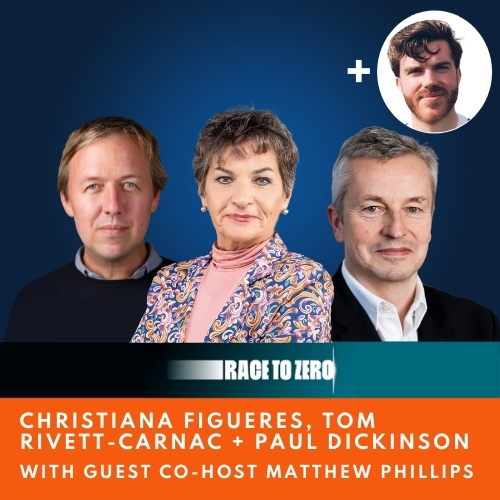
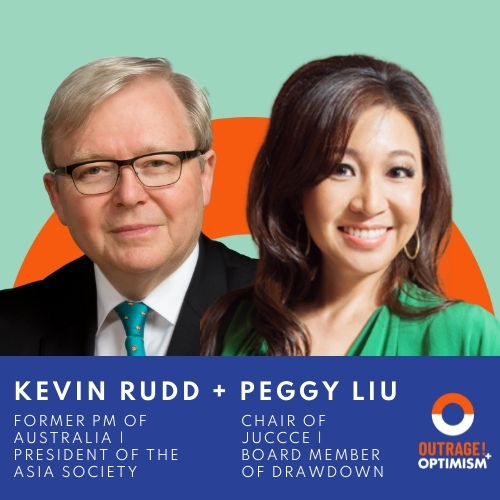
.jpg)
